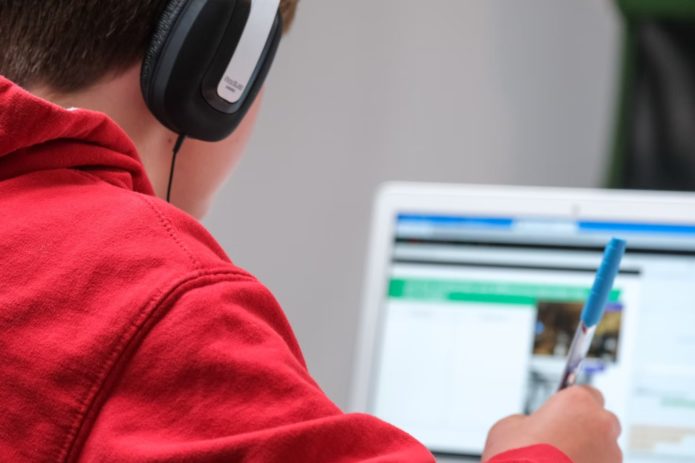There is always so much controversy about whether technology can help students achieve better results in learning or not. Some teachers insist on utilizing hi-tech gadgets for a more comprehensive perception of the material they offer to young learners. Even during the pandemic that influenced the conventional style of education, it has been proven that technologies could benefit people who want to gain valuable knowledge and sustain it for a longer time. Of course, some drawbacks show that some digital educational approaches are not always appropriate. However, if we learn to use the technology correctly, it will bring a much more positive impact on making academic education more effective and profitable.
In this article, you will see the main advantages and disadvantages of technology in education to help you decide how to implement this information for your benefit and develop new skills relevant to your future. Or, if you are a teacher, you can learn to apply the latest methods and approaches in your teaching style to make your classes more productive and exciting for students.
The Advantages of Using Technology While Studying
Let’s start with the positive sides of utilizing technological devices in education, as they outperform the drawbacks and problematic points of neglecting digital tools while studying. However, there are still potential challenges that should be considered to improve teaching techniques when using specific tools.
It makes studying exciting.
It’s a well-known fact that when something is appealing or exciting to students, it becomes easier for them to perceive information and learn new material. With the latest technologies, it has become easier to engage young people in a learning process by offering them an exclusive format of online classes with virtual classrooms where they can feel comfortable discussing any subjects and issues teachers present.
In addition, such devices as laptops and tablets allow young students to choose any session or class they feel would suit their interests and needs. The apps that already include fun and exciting stuff for kids who have just started school make the learning process more entertaining for them to prepare students for further challenging but not least exciting academic tasks.
It can offer extra assistance.
Do you remember what it feels like when you are preparing for an exam, but you can’t turn to anyone for help at the most critical moment? One simple mistake in a paper can influence your academic performance, making students even more nervous and anxious about tests or home assignments. With modern technologies, you can get extra assistance anytime you need it.
Thus, if you can’t cope with the paper by yourself, you can find an essay assistant to help you solve the problem quickly and write excellent work to improve your grades. Using academic services doesn’t imply students can give off all their college responsibilities to set themselves free. On the contrary, with professional assistance, they can become more confident in their pursuits and use more determination to reach better results in studying.
It prepares students for the future.
One of the most prevailing reasons technology is relevant for students in their studying processes is that it provides them with the ground for a stable and reliable future. Moreover, gaining specific knowledge or understanding of how to use the devices and digital programs will enable them to build successful careers in whatever fields they choose. Thus, being thoroughly “equipped” with particular skills can make you a highly demanded expert in your occupation.
The Disadvantages of Digitized Education
Even though there are more positive impacts of utilizing gadgets in studying, there are still some drawbacks that can slow down the learning process or make it less effective. Here we can highlight the main disadvantages to ensure that such problems will be solved with more modernized teaching approaches.
It distracts students from learning.
Yes, most top-notch gadgets distract learners from studying, making them less concentrated on classes and more obsessed with social media. Thus, if you want to achieve excellent results in your courses, block the sites that constantly draw your attention, preventing you from focusing on the lesson. However, such problems can’t be settled by teachers who lead online sessions for students, as they cannot control learners’ motivation and intention to study.
It promotes plagiarism and unfair practices.
Unfortunately, with innovative online education, it’s easier to implement appropriate manipulations of misconduct and misuse of information resources. Thus, it became difficult for teachers to identify whether the student uses genuine or plagiarized content, even though specific programs are used to check works’ originality. Such a situation has increased the responsibility of teachers to eliminate such practices.
It can discourage creativity.
As the coin has both sides of it, similarly is the technology: from one side, it encourages students to learn, but at the same time, it can prevent them from exposing creativity, which doesn’t let the imagination work to its fullest potential. Online educational games and activities with technology-based content can make it so easy for a student to solve complex tasks, so there is no need for them to turn to creative thinking or analysis relevant to every educational process. Such dull activities may also stop learners from developing their imagination and logical skills. Thus, choosing online training will enable you or your students to enhance your creative abilities correctly.


